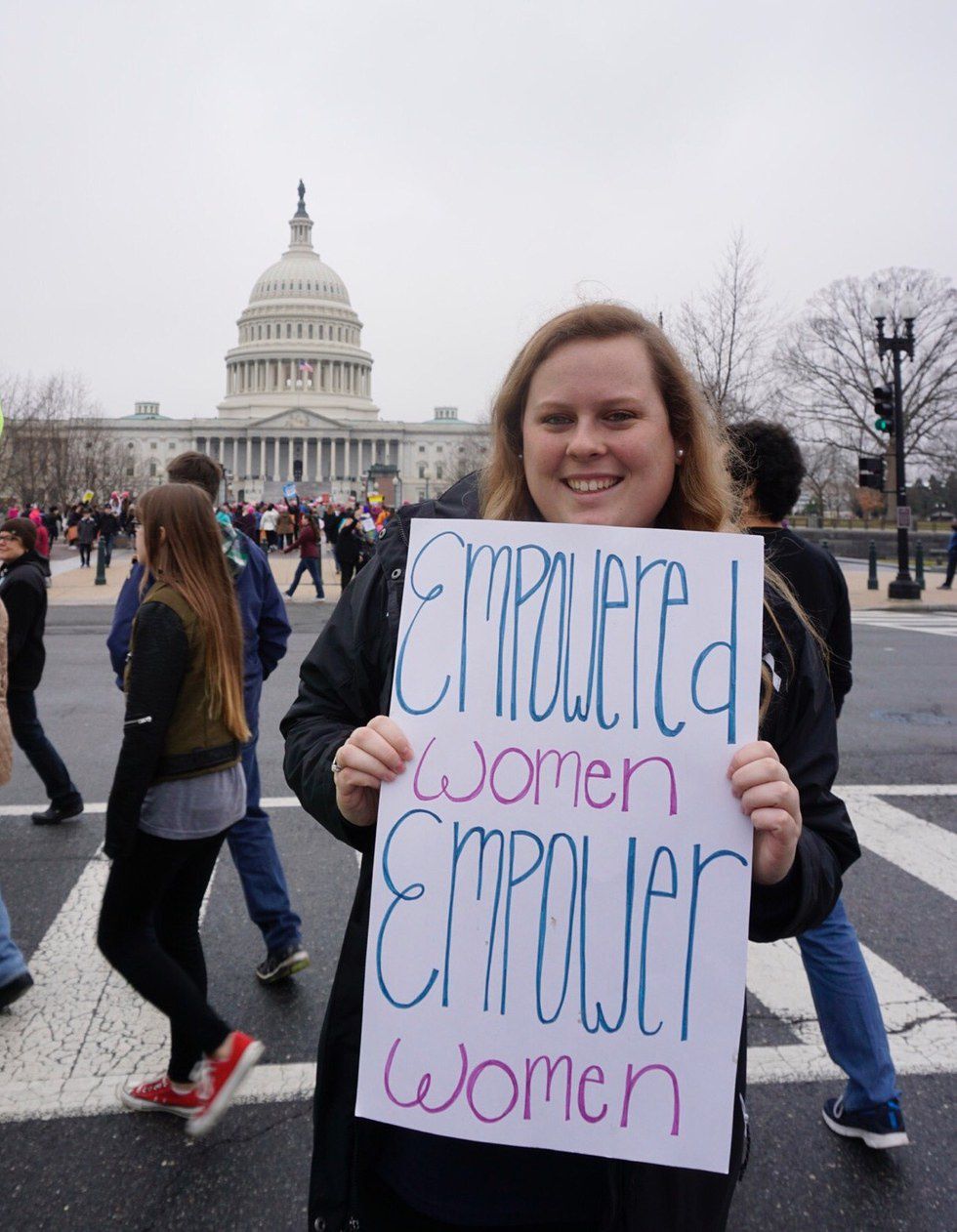On Saturday January 21, approximately 3 million people from around the globe joined forces to rally their support for the highly anticipated Women's March. With nearly 600 additional sister marches and the monumental march in Washington, D.C., the Women's March on Washington has officially been marked as the largest inaugural protest in history.
Alongside the nearly 500,000 men, women, and children who marched in the nation's capital, University of Tennessee senior Brooklyn Howard found herself almost ten hours away from home, right in the middle of the historical event.
"I had heard about the Women’s March and supported it wholeheartedly, but it was not until the week of that I finally decided to step out of my comfort zone and go," said Howard. "I wanted to be on the right side of history and not just watch as it passed me by."
Having grown up in the Bible Belt where conservatism seems to rule all, Howard has not always felt so comfortable being open about her views on political matters or her opinions on human rights and social injustices.
"I was honestly a little scared to see the reactions of my friends and family," admitted Howard, "but I have received nothing but support. That shows me this country is not lost."
In light of the turbulent political climate in the United States brought on by the 2016 presidential election, it is not surprising that there were many harsh critiques of the Women's March and some confusion about what the movement itself stood for. A large number of people thought that the march was just a way for American women to protest the election of Donald Trump and his predatory and sexist comments, but the movement is much more than that.
The Women's March was created and planned by women, but the issues it combats go much further than just women's rights. The marches became a way for people around the world to also come out in support of the Black Lives Matter movement, religious freedom, LGBTQIA+ rights, Native American rights, rights for all people of color, rights for disabled persons, and a way to support victims and combat sexual assault, all of which were issues that people felt Trump threatened with his abrasive political stances and offensive election platform.
When naming reasons why participating in this march was important to her personally, Howard wanted to make it clear that she was not marching just to protest Trump.
"This movement was a lot different than what some media outlets would lead you to believe," she said. "It was not a bunch of 'whiny liberals' coming together to complain about our president; it was a movement forward toward a better tomorrow and equality for all people."
Despite heavy criticism, supporters of the march and all of its causes are not backing down from the challenge. Many people reasoned that protesting and "throwing tantrums" would not lead to any sort of change, but the long history of civil and political rights movements in America says otherwise.
Many people of every race, gender, sexuality, and religion that had marched in the Civil Rights Movement of the 1960s and for women's rights and other prominent causes over many decades joined the Women's March to continue their lifelong fight for equality. In ways, it is disheartening that people that have been fighting the same fight for so many years still have not found the justice they so greatly deserve, but it also shows where the true heart of America lies and how the people of this great nation are still willing to fight for what is right and not give up until they've won.
"I met so many beautiful people at the march from all over the world," said Howard. "I was talking to some older women who had been fighting for women’s rights for over 50 years, and they looked at me and said, “It’s your turn now.”And it is our turn. It's our turn to march and advocate for those all over the world who cannot advocate for themselves. It's our turn to march so that the generations to come will not have to. It's our turn to march for any man, woman, or child that has ever been made to feel like a lesser human being than someone else. It's our turn to demand change. It's our turn now.

























